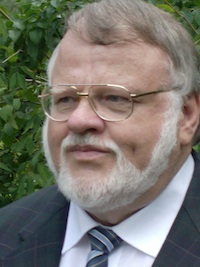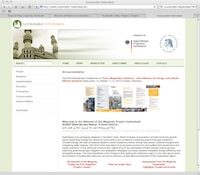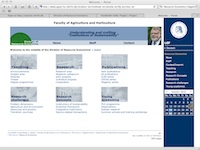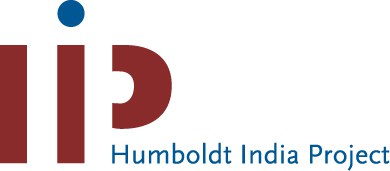Climate and Energy in a Complex Transition Process towards Sustainability in Hyderabad - Mitigation and Adaptation Strategies by Changing Institutions, Governance Structures, Lifestyles and Consumption Patterns
The focus of the Project is the South Indian emerging Megacity of “Greater Hyderabad”, which is expected to reach 10.5 million inhabitants by 2015. Driven by consumption and lifestyle changes, per capita greenhouse gas emissions are constantly increasing in the emerging Megacity. The use of traditional biomass for fuel (e.g. firewood) is high in peri-urban areas; at the same time, modernization and urbanization processes have led to a growth of commercial energy and indirect energy uses, e.g. of energy embodied in products and services, indicating Hyderabad’s shift towards a modern consumer society. Severe floods in 2002, strong heat waves in 2003 and altogether three drought years between 2000 and 2007 have caused serious damage to human life, property and economic advancement. Therefore, the role of climate change in everyday life of the people in Hyderabad has become a central issue that the Project aims to explore and contribute to the resolution of the arising problems. This requires commitment of numerous actors to subscribe to institutions of sustainability, which the Project encourages by organizing discourses for changing the rules-in-use.
Research Objectives
The Project integrates concepts of institutional, economic, political and technological change to achieve the following specific research objectives:
- To develop specific knowledge and a rich data base on climate change, mitigation and adjustment opportunities, energy efficiency and bio-energy in Hyderabad
- To formulate a “Sustainable Development Framework” for the metropolitan area Greater Hyderabad with priority on mitigation and adjustment strategies
- To foster generation and application of local knowledge to initiate institutional innovation and governance reforms that support sustainability objectives
- To develop strategies of communication and co-operation between policy makers and stakeholders, also addressing gender issues
- To come up with a “Sustainable Urban Food and Health System” to meet the nutritional and health demands of a growing population, coping in parallel with the adverse effects of climate change and energy scarcity
- To design institutional and policy solutions for “Sustainable Environmental Management”, focusing on climate and energy in urban and peri-urban regions
- To formulate an action plan based on energy efficiency, mitigation and adaptation strategies for climate change with special reference to food, bio-energy, health and environmental management
- To secure adoption of the action plan by politicians, agencies, groups and firms by employing cooperation mechanisms and capacity building measures
- To set up an advanced programme for excellent academic education of PhD students and Post-docs
Application Perspectives
The Project aims at the following knowledge-based innovations:
- To develop a Sustainable Development Framework (SDF) which focuses on mitigation and adaptation strategies for climate change as well as energy provision and efficiency
- Based on that, to design a strategy for a Perspective Action Plan (PAP), focusing on the resolution of these problems, including related core issues concerning nutrition, health, environment and natural resources
- To implement selected Pilot Projects at the community level and organise learning processes for their adoption by setting up appropriate institutions and governance struc¬tures that enable fruitful policies and technologies
Indian Partners
The Indian project partners include renowned insti¬tutes such as Osmania University (OU) and the Cent¬er for Economic and Social Sciences (CESS) in Hy¬derabad, The Energy and Resources Institute (TERI) in Dehli, the International Crop Research Institute for Semi-Arid Tropics (ICRISAT) in Patancheru and others
Actors and Stakeholders
Key actors and stakeholders from Germany and India comprise, among others, of the Government of Andhra Pradesh (GoAP); the Ministry of Municipal Administration and Urban Development (MoMAUD); Hyderabad Metropolitan Development Authority (HMDA); the Greater Hyderabad Municipal Corpo¬ration (GHMC); the Chamber of Commerce and Industry, Berlin (IHK); the German Association of Consumer Cooperatives (ZdK)
German Partners
The Project partners from Germany are the Division of Resource Economics (RESS - Lead Partner) and the Institute for Cooperative Studies (IfG) from Humboldt University in Berlin; Potsdam Institute for Climate Impact Research (PIK); Institute of Cultural Geography, University of Freiburg (CULT-GEO); PTV - Planung Transport Verkehr, Karlsruhe; NEXUS - Institute for Cooperation Management and Interdisciplinary Research, Berlin

Prof. Dr. Dr. h.c. Konrad Hagedorn
Room: 218
Phone +49-30-2093-6305
E-Mail: k.hagedorn@agrar.hu-berlin.de
Office:
Sigrid Heilmann
Phone: +49 (0)30 2093 6305
Fax: +49 (0)30 2093 6497
E-Mail: s.heilmann@agrar.hu-berlin.de
Address:
Division of Resource Economics
Department of Agricultural Economics
Humboldt-Universität zu Berlin
Unter den Linden 6 (mail address)
Philippstr. 13, Haus 12 (visitors) D-10099 Berlin





